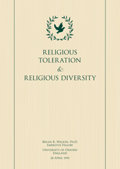Just as scholars have come to recognize the contemporary diversity among religions in today’s society, so, if basic human rights of freedom of belief and practice are to be maintained, it becomes essential that old stereotypes of just what constitutes religion should be relinquished. In a culturally pluralistic world, religion, like other social phenomena, may take many forms. Just what is a religion cannot be determined by the application of concepts drawn from any one particular tradition. Only a higher degree of abstraction, superordinate to each particular culture and each particular religion, can encompass within one framework of reference the range of diversity of actual religious movements. Just as the concrete phenomena of one particular religion cannot be allowed to dictate the necessary style of other faiths, so, too, the language employed needs, as far as is possible, to be uncontaminated by specific cultural connotations. It is to this end, and in the interests of equity in transactions concerning religions, that the probabilistic inventory that is set out above [Section 11] was advanced. Only with such a device, consciously constructed both to recognize the evolutionary character of religion and to subsume under independent categories the various facets of thought and practice, is it likely that the wide variety of contemporary religion will receive the consideration that is its due.
Bryan Ronald Wilson
28 April 1995
Oxford, England





























